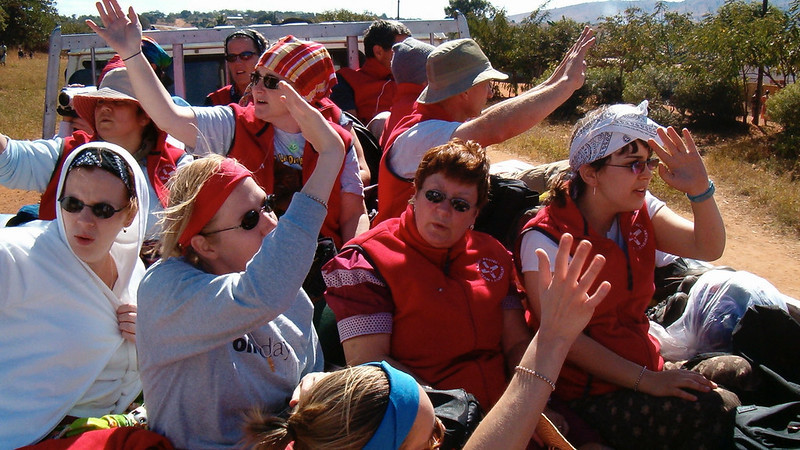Lilongwe, Malawi. “I watched the young man enter Kamuzu International Airport for the first time,” recalls Richard Stephens, a member of the Malawi Project. “Like so many others before him, this young man was realizing a long-standing dream of coming to Africa and helping the people of Malawi. Now it was coming true, and the excitement could be seen across his face. However, as much as he had prepared ahead of time, he was about to make his first blunder. Though it was somewhat minor it reflects the way western customs can conflict with those of Africa in ways that are quite unexpected.”
Walking along the dusty road of the trading center the young man waved at those who looked his way (which was almost everyone who passed). When the opportunity afforded itself, he spoke to them in the few words he had learned. ‘Muli Bwanji’ he said, and with a smile they responded. Then he turned his attention to the next person, leaving the one to whom he had just spoken a bit confused and bewildered at the American who had just greeting him, then suddenly walking away.
What just happened was one of the major differences between the current culture. in America and that of Malawi. We might say it falls under the category of a “proper” conversation.
You see, in the U.S. we have, to a very great extent, lost the art of getting to know someone. We are in such a hurry it is now the norm that we speak to a person as we pass them, but in our rush, we have no intention of stopping to talk. Even in business the art of conversation has changed. No longer do we take time to get to know each other, where we are from, what we like to do, and what are our goals and interests in life. Learning about others has changed. Personal contacts are fast fading. It is all business. No longer do we ask:
“Who are you?”
“Where are you from?
“How many children do you have?”
“Tell me about yourself?”
“What are your interests?”
Today we are in such a hurry we jump directly to why we are there, and what business we wish to do with the person we have just met. Our conversation goes from the personal to the professional without the blink of the eye.
In Malawi that art still exists. In most cases they want to get to know you before doing business. When you pass someone and greet them, they often think you are going to stop and talk with them, especially if you are a visitor to the country. They are interested in you and want to know more about you.

The next time you consider greeting someone, then passing them by, or jumping directly to some sort of business question, why not take just a minute to ask about the real person that is front of you?
Picture: Several years ago, we had a college team come to Malawi to assist in some of the programs. Before they left. the states we told them how important it would be to greet everyone with whom they came in contact. Early in their time in the country they all piled in the back on the vehicle to go to a nearby trading center for an important project. When I turned and looked at them, I realized they were already engaged in a very important project.
